Homeowners usually store water heaters in closets within their homes. When you realize you could use that space for other utilities, you might consider relocating your water heater outside. But how much time and money will it cost? We've looked these up and gathered all you need to know in this post!
Generally, it costs around $500 to $2,500 to move an existing water heater to a different location. It usually includes disconnecting, moving, and reconnecting the heater and other parts. The prices will change depending on where you have the heater installed and how far you will be relocating it.
You can move some water heaters without needing professional assistance. However, it's best to contact an expert to help you when you need to reinstall its parts. Keep reading, and we'll fill you in on what you need to know about moving a water heater.

Is Moving A Water Heater Expensive?
You can expect to pay about $500 to $2,500 when you relocate your water heater, including disconnecting and reconnecting fees for the rest of the parts. But note this isn't the final price since additional work, removal, and installation requires separate costs.

If you own a larger unit or need to move the heater to a farther relocation point, your total expense may increase. Your quote can go up to $10,000, excluding the cost of extra work.
Costs Involved
Some companies include all the necessary labor for moving water heaters into the initial cost. Despite this, you will have to make additional payments to get the job done in most cases. Here's what to consider when calculating water heater moving costs:
Equipment And Parts
You may be required to provide a few tools and parts to relocate your water heater, especially if you're thinking of doing it yourself. These include wrenches, screwdrivers, hoses, cutters, and a dolly.
A hand truck or dolly takes up most of the equipment expense. Consider looking into home improvement stores that offer dolly rentals to cut down on total costs.
Click here to check this hand truck on Amazon.
If the water heater's new location doesn't come with a water or gas line, you must purchase and install them first. Keep in mind connecting these new lines is challenging, so it would be better to contact a professional for it.
Replacements Or Repairs
Before getting your water heater relocated, check if it has any damage or underlying issues. It's natural for appliances to go through wear and tear after a while, but it could lead to a shorter lifespan and trouble with the operation.
Moving the heater without inspecting and repairing it may cause further problems during the transfer. If you get it checked sooner, you can assess whether to repair or replace it instead, saving you a hefty cost!
Installation Services
There's more to installing a water heater than just connecting hoses. After setting it up, you must adjust the water pressure level and make sure the pipes and hoses are secure.
So, the best option for this is to contact professional services. These experts follow a thorough process to ensure everything is fully functional and safe.
You'd also want to look into your state building codes to clarify if they require professional help during installation before starting a DIY project.
If you want to know about permits for water heaters, read this post: "Do You Need A Permit To Replace A Water Heater?"
Can I Relocate A Water Heater Myself?
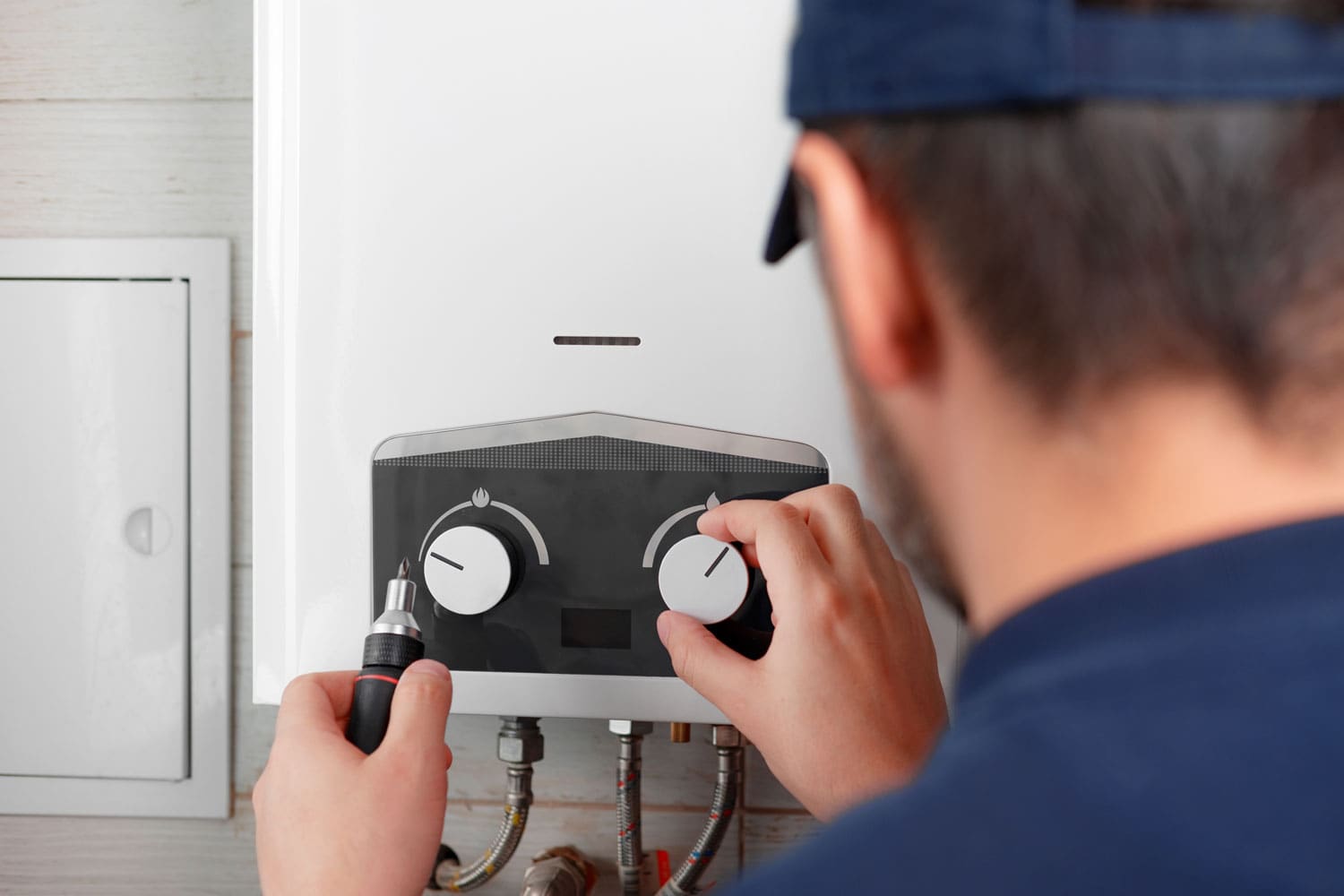
Yes, if you're on a tight budget, you can choose to relocate your water heater on your own, given that building codes in your state allow you to do so.
Some homeowners can't spend large amounts on extra home services, like appliance relocation. Although a DIY project may be tempting, it could cost more than opting for professional service if the conditions are not appropriate.
If you want to do it yourself, it's essential that:
- You have a pre-existing water or gas line in the relocation point.
- Your water heater doesn't need repair or replacement.
- You have all the equipment required to disconnect and reconnect the heater.
The lack of any item listed above will urge you to seek a professional service or add up to a higher cost.
Tips For Moving A Water Heater
Before moving your water heater, you have to consider different factors to prevent complications. Listed here are a couple of tips to help you during the project:
Assess Your Water Heater
Water heater relocation allows you to evaluate your heater's current condition. Even when water heaters last for a few years with proper maintenance, unexpected factors can influence this.
Look out for signs of corrosion or leaks that seem beyond repair. Doing this will keep you from spending time and money on a heater you could replace instead.
Prepare The New Location Beforehand
Getting the relocation space ready in advance saves you lots of time when doing the project. It also helps you identify how much extra work you need to get done.
Finding a location with existing water and gas connections for a DIY project makes the job easier. But if there are no spaces with any existing lines, pick a spot suitable for installing them.
Ensure Proper Disconnection And Reconnection
It's crucial to properly disconnect and reconnect your water heater to maintain its safety and efficiency. A few things you'd want to remember are the following:
- Shut off the natural gas valve to eliminate gas flow across the house.
- Turn off the main water valve to avoid flooding and water damage.
- Drain all the water out from the water lines and hot water tank.
- Ensure power is off from the electrical panel and fuse box before disconnection.
- Keep unused water and gas lines capped to prevent leaks.
- Pressurize the water heater after connection to regulate water flow.
- Only use the valve on the gas line to regulate gas flow to the heater.
How To Relocate An Electric Water Heater
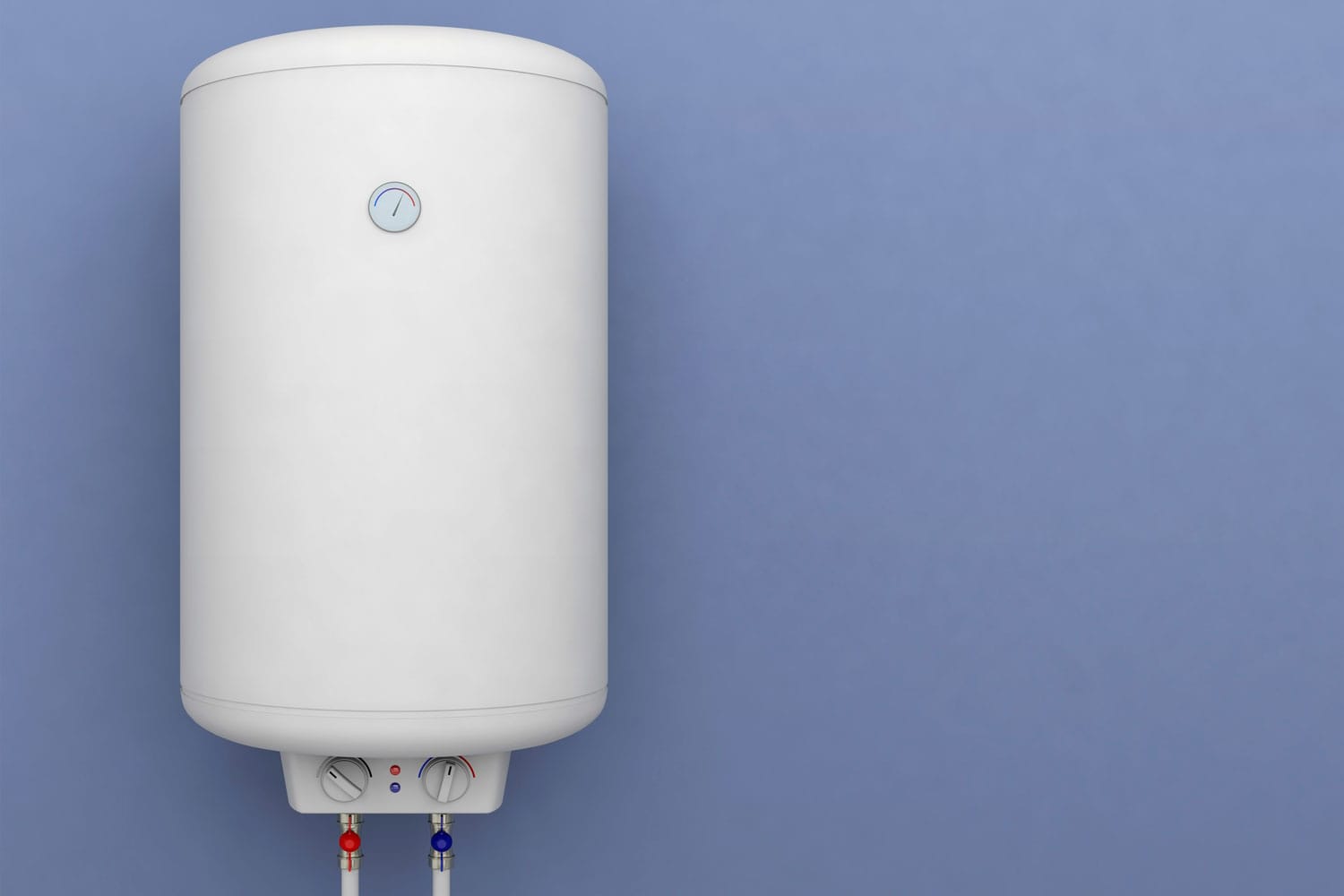
Unlike other models, an electric water heater is generally easier to relocate because it requires fewer parts and connections. Here is a guide on how to move this type of unit:
- Turn off the breaker that powers the water heater.
- Open a cold and hot water faucet to drain all the water from the tank.
- Disconnect the pipes and connectors on the water heater.
- Disconnect the electricity by taking off the electricity cover plate, undoing the wire connectors, and unscrewing the ground, white, and black wires.
- Tip the tank to make sure all water is gone, then close the drain valve and plug the pipes.
- Carefully place the tank on a hand dolly and move to the new location.
- Connect the hot (red) and cold water (blue) pipes onto the heater, securing them with plumbing tape and tightening them with a wrench to prevent leakage.
- Turn on the water supply and open the tank's water valve. Turn on a cold and hot water faucet to bleed air from the pipes.
Why Should I Move My Water Heater?
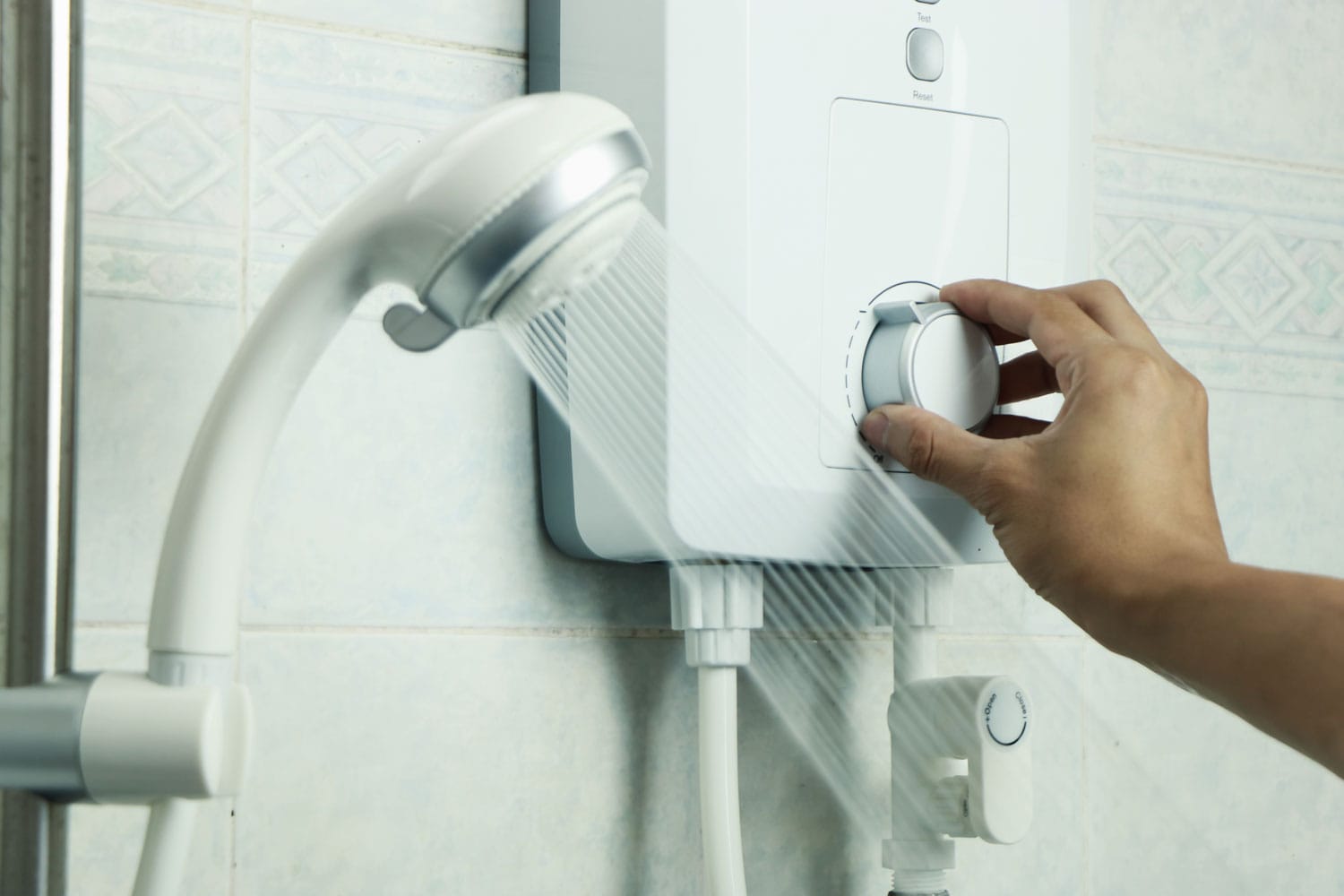
If your water heater is working well in its current location and no other issues are occurring within your home, it's alright to keep it where it is. However, relocating may bring more benefits, including:
Saving On Costs
Using a water heater far from the location it's needed can lead to additional expenses due to extended waiting periods for the water to warm up. At the same time, the more hot water travels, the cooler it gets when it reaches the destination.
Placing your water heater closer to where you need it opens for quicker warming time and lowers the time you spend with the heater left open, saving you on both water and energy costs.
Freeing Up Space
Keeping your water heater in a closet takes up space that you could use for storage or other items. However, refrain from relocating them outside unless it's a model designed for outdoor conditions. Instead, move them to an attic, garage, or extra indoor storehouse.
Less Damage Risk
Relocating your water heater to a more isolated location lowers the risk of water damage to other appliances and your personal belongings. While it's vital to make sure water heaters are secure, it's also good to prepare for possible leaks that could harm your property.
Should I Relocate Or Replace My Water Heater?
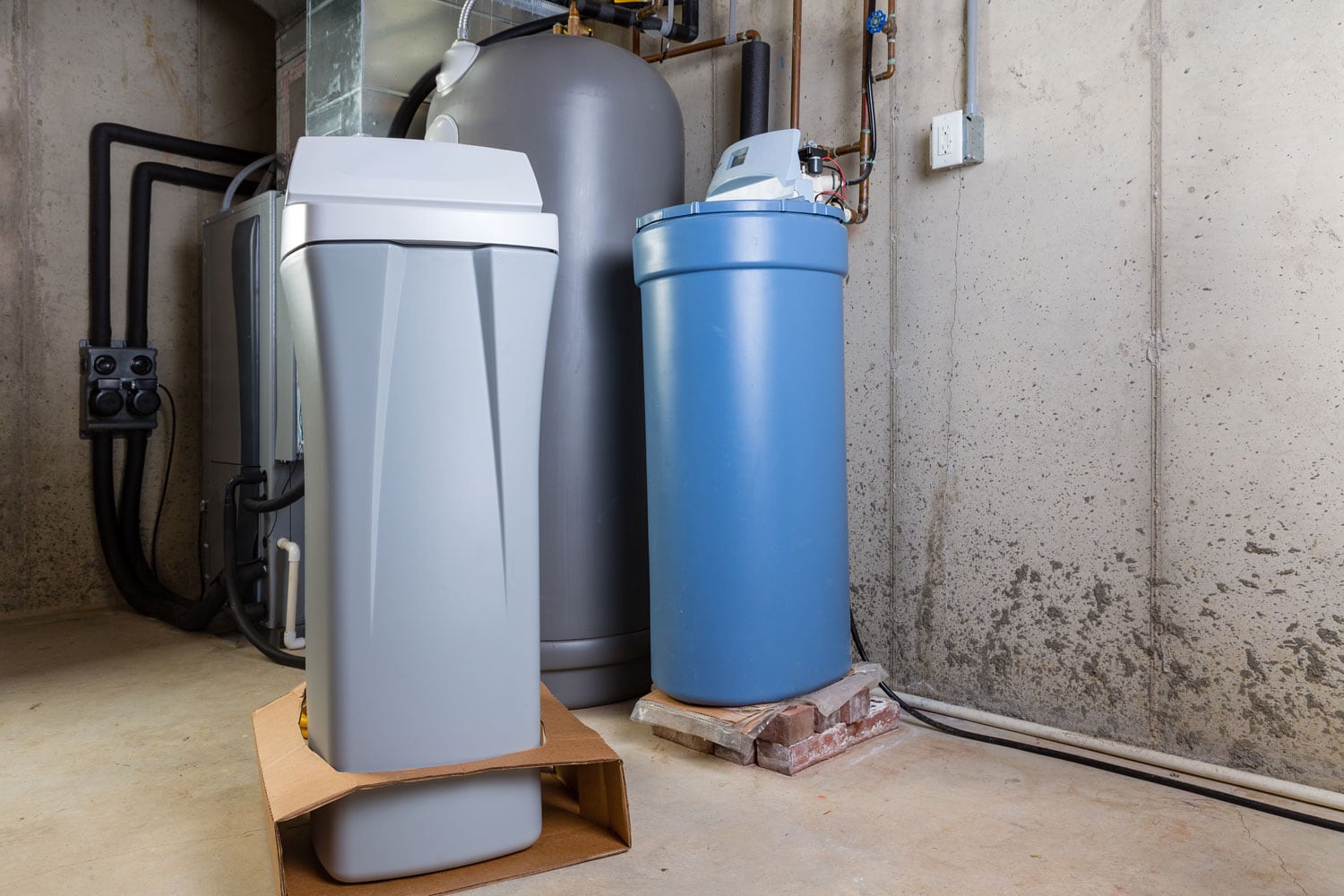
A well-maintained and working water heater can last you for a few years before you need to get it repaired or replaced. But if you start noticing a difference in performance and persisting issues, it's best to check up on the heater's current condition.
If your water heater has severe damage or signs of deterioration, you may want to consider replacing it to save you on costs. Replacing your heater is also good if you're needs are changing and you prefer a different model.
Read this post to know how to identify a bad water heater: "What Happens When A Water Heater Goes Bad?"
Water heater replacements cost about $550 to $3,500 or higher, varying on the unit type and labor required.
Click here to check this water heater on Amazon.
In Summary
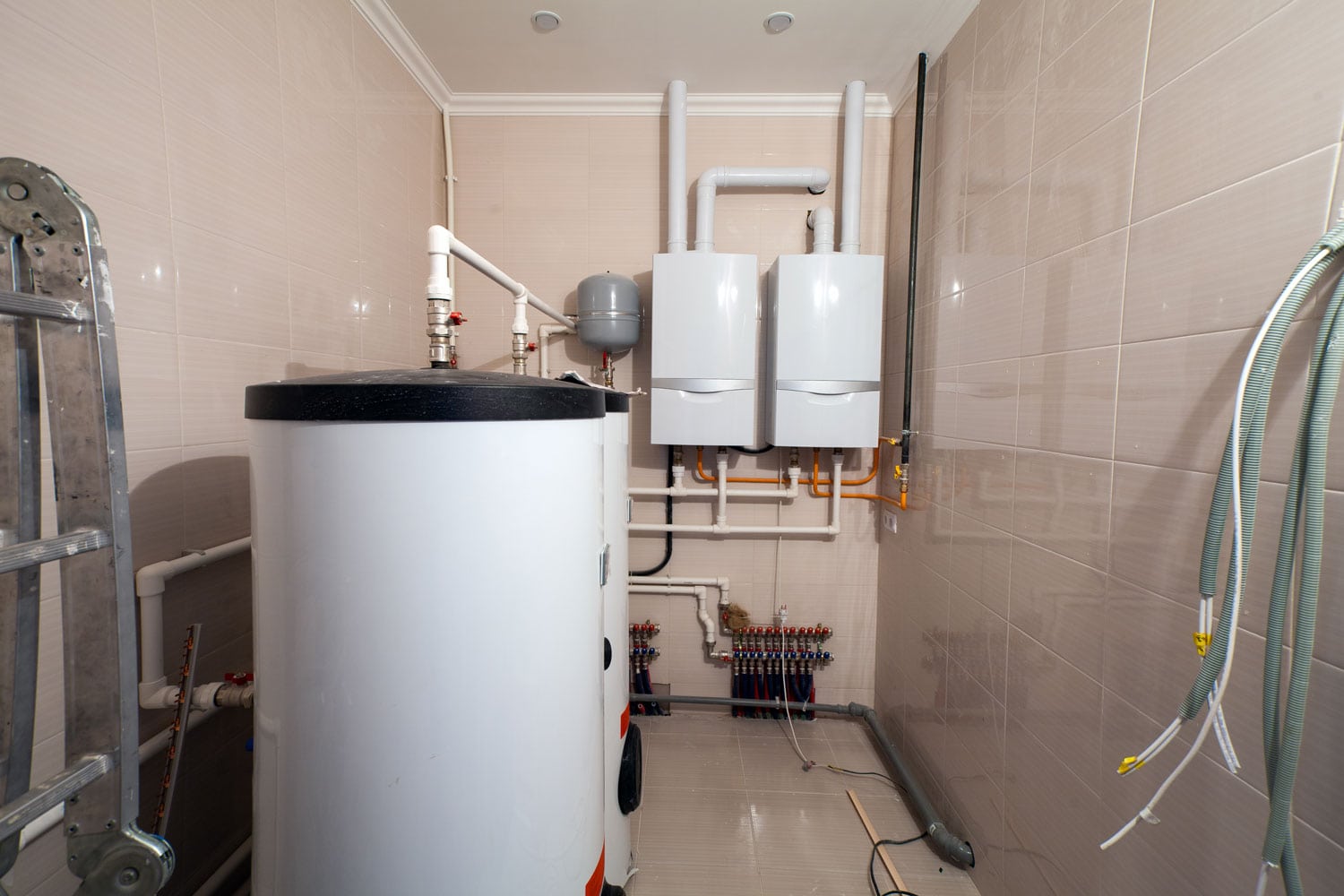
The cost of moving a water heater starts at around $500 and goes up from there. Additional expenses will include extra labor for repairs, installations, and many others. While it's possible to relocate the heater yourself, getting help from an expert will ensure a safe and efficient process.


